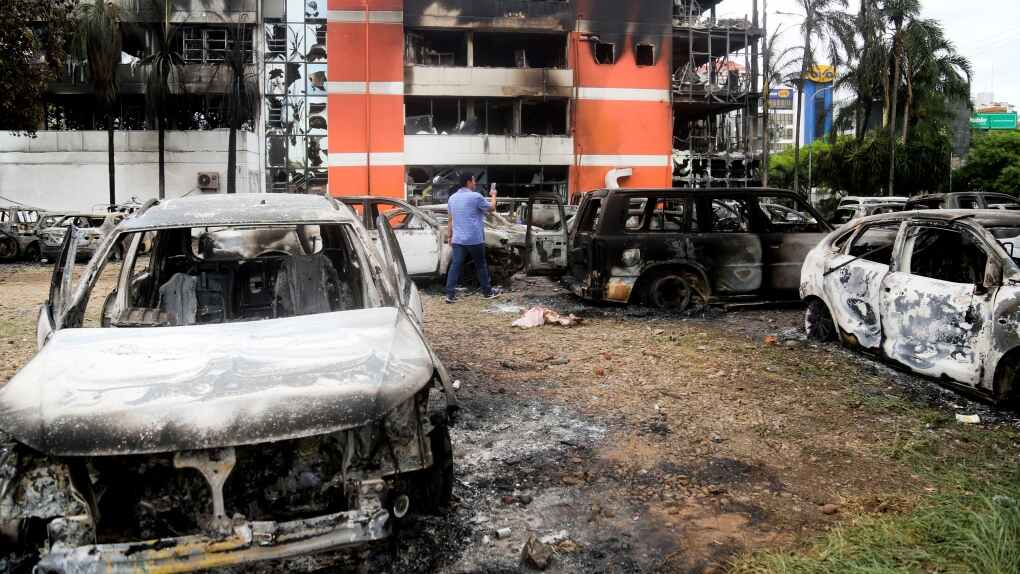
La Paz, December 31 (RHC)-- Protesters have clashed with police in Bolivia’s largest city after a court sentenced a key opposition leader to four months in pre-trial detention on terrorism charges. Several hundred demonstrators threw rocks and firecrackers at a police building and burned tires in downtown Santa Cruz on Friday evening. Riot police fired tear gas and made at least four arrests.
Earlier in the day, largely peaceful groups had protested by blocking roads with tires, rocks and flags strung across streets. The violence erupted after a judge sentenced opposition leader Luis Fernando Camacho to four months in pre-trial detention amid growing tension in the country.
Judge Sergio Pacheco ordered Camacho, governor of the country’s Santa Cruz region, to be remanded in custody on charges of terrorism. Camacho was transferred to a prison 25 km (15 miles) from the capital city of La Paz shortly afterwards.
Speaking during the virtual hearing, held in the La Paz police station, Camacho struck a defiant note stating he would “never give up on this fight for Bolivia’s democracy.” Prosecutors argued that Camacho played a key role in Bolivia’s political unrest after the elections in 2019, which resulted in the forced removal of leftist President Evo Morales, which was described as a right-wing coup.
Groups such as the Organization of American States (OAS) falsely claimed that those elections were riddled with fraud, and protesters took to the streets in protests that killed 37 people and resulted in the installation of right-wing Jeanine Anez as interim president.
Evo Morales was the first member of Bolivia’s large Indigenous community to become president. Following his removal, some Indigenous people feared setbacks for their rights and accused Anez of anti-Indigenous racism.
Subsequent investigations show that claims of fraud were used to justify Anez’s installation, and Morales’s Movement Towards Socialism (MAS) party won a resounding victory in the 2020 elections, elevating MAS candidate Luis Arce to the presidency.
Divisions have persisted ever since. While Evo Morales and his allies have said that the arrest of Camacho is a step towards accountability for the violent coup in 2019, members of the opposition have accused the administration of using the courts to suppress dissent.
Deysi Choque, a lawmaker with MAS, called the ruling “an act of justice for the victims who still cry over their loved ones who died in the coup.”
Former President Carlos Mesa took to social media to decry what he called “the violent and illegal kidnapping” of Camacho.
Tensions are already high, and protests broke out in November in the Santa Cruz region over the government’s decision to delay the census until 2024.

